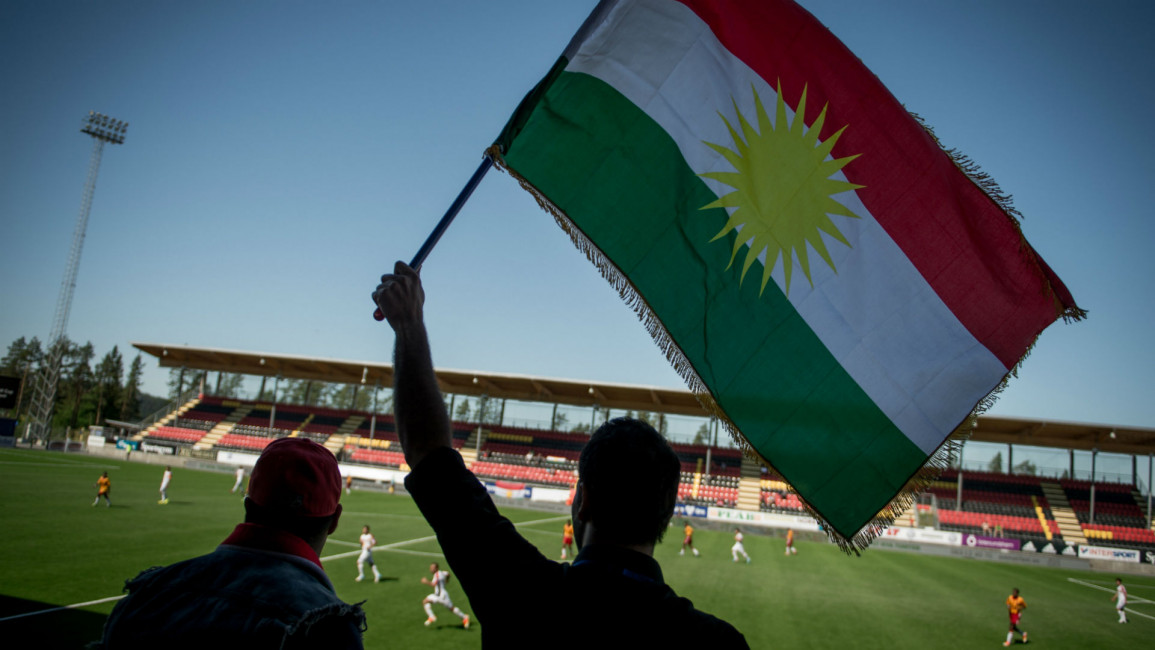A breakaway tournament for champions
On Sunday, Abkhazia and Panjab FC met in a breakaway region in Georgia to decide who would be crowned "world champions" in this little-known football event.
The CONIFA Football World Cup is an international tournament for partially or unrecognised states, regions and stateless peoples. It is a marked alternative to the glitz and glamour of the FIFA World Cup, although certainly no less passionate.
This year, the tournament took place in Abkhazia, a region in Georgia which broke away during the disintigration of the Soviet Union, and whose people see themselves as an independent nation.
Crossing borders
In 2008, Abkhazia became the centre of a globe-changing event. The Moscow-recognised breakaway region was one of the core issues in a war between Russia and Georgia, which displaced tens of thousands of people.
The battle also saw President Vladimir Putin take a more agressive approach to "protecting" areas considered within Russia's historic sphere of influence, whether those people liked it or not.
On the pitch such events are far from the minds of the Abkhazia players. The home fans saw the match as a rare opportunity to display the Abkhazia flags and patriotism for an international audience.
It was also a chance to welcome hundreds of fans from across the world and 100 accredited journalists who arrived in the little-known region for the tournament.
"Abkhazia has long been plagued by an image problem - people still think of a conflict zone in the Caucasus - so we hope that this tournament educates the global community about what is in fact a friendly and hospitable place," said CONIFA President Per-Anders Blind told The New Arab.
Despite innevitable logistical problems of organising the event in a region unrecognised by most of the world - not to mention problems for sometimes oppressed teams getting to the tournament - the event was in some ways about getting rid of national borders and bringing people together.
 |
CONIFA is 100 percent politically neutral, however, we are not oblivious to the political implications of our events. - CONIFA President Per-Anders Blind |
 |
"CONIFA was established to celebrate the uniqueness of people all around the world, build bridges among different cultures and provide a global platform for people to play football."
Twelve teams took part in the week-long tournament this year, which the organisers say has been a great success.
These included Turkish-speaking Northern Cyprus, Somaliland and the United Koreans in Japan.
The diversity of the groups also highlighted varying levels of struggle for autonomy, recognition or greater civil rights.
"CONIFA is 100 percent politically neutral," Blind insists. "However, we are not oblivious to the political implications of our events."
Among the teams is Kurdistan FC, who were knocked out in the quarter finals and whose manager dedicated the team's first CONIFA win to the Peshmerga armed forces.
Fighters from the group - aligned to the Iraqi Kurdistan government - are the central force in a successful campaign against the Islamic State group in northern Iraq, which has seen it win the support of an array of international powers.
Meanwhile, a referendum for independence is expected to take place this year. Despite the vote already being rejected by Baghdad, Erbil insists this is a national right for the Kurds.
 |
Football is incredibly powerful when coming to represent a national idea. - James Montague, football journalist |
 |
With Kurdish forces in control of vast areas of land in Iraq and Syria - including areas populated by Arabs - the prospect of independence for the Kurdish territories has probably never been closer.
National recognition
The Kurdistan's football team is just one expression of this national aim.
"Football is incredibly powerful when coming to represent a national idea - you get to fly your flag, you get an anthem, and recognition on a football stage almost refers a public legitimacy as much as UN membership does," said James Montague, a journalist and author of When Friday Comes, a book on football in the Middle East.
"That is why you see so many disputed spaces and regions that want to be states want to go down the path of sport to further its aim."
Montague mentions Palestine as one prime example of this. After decades battling for political recognition, it was sports which gave Palestine admission to international events.
"It managed to get IOC membership and FIFA and AFC membership and this has been the most potent symbol of Palestinian nationhood outside the West Bank and Gaza."
Players now represent their country in the Asian Cup and World Cup qualifiers, despite Israel's decades-long occupation of Palestinian territories.
Full national recognition is conferred on the Palestinian national team, including singing the national anthem before games, probably much the ire of Israel.
For the "nations" without this level of recognition, the CONIFA World Football Cup still represents a path to international acceptance. It might also help activists in their off-the-pitch struggle for autonomy or greater rights seem that little bit more within their grasp.



